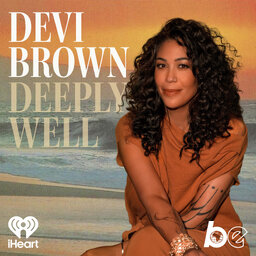Q&A with Devi Brown
Today's questions explore food, offering wellness tools in marginal communities, balance within relationships, and taking healthy time for self.
What are some questions that you have about mindfulness, the spiritual journey, and life? Share them with us via Instagram: @DeviBrown
 Deeply Well with Devi Brown
Deeply Well with Devi Brown


